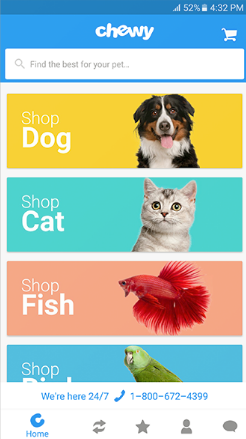When it comes to your company’s mobile strategy, one of the most popular questions to ask is “Does my business need a mobile app?”
The answer is it depends on your current state of business, as well as your future objectives. Just take a look at the history of the website. Perhaps 15 years ago, many small businesses were content without a website. They had signs, print advertising, direct mail pieces, maybe some radio advertising. Why did they need a website? Fast forward to today, and regardless of the size of your business–you need a website. But, what about a mobile app? Does a small or local business really need a mobile app? How can you tell when you’re ready?
The Future of Mobile Apps:
Just as in the case with websites, many small and local businesses do not feel they need a native mobile app since their site is already mobile-friendly. Yet, there’s a huge potential app that has over websites. An app can do these things:
- Allow a customer to submit photos.
- Alert prospects to sales when they walk by your location.
- Lets a customer review your products.
- Gives you the name of the customer as they walk through your door.
- Adjusts the price of an item based on a customer’s social media history.
- Lets a customer try on a product, virtually.
All of these things can be done on the go at the customer’s convenience. They’re too busy to open your website, but they will download and play with an app. Already existing natively in mobile apps are:
- Biometrics
- Cameras
- Augmented reality
- Geo-location
- Sensors
- 3D gaming
These are the types of features you won’t find on traditional websites. In addition, new functionalities will be available through mobile apps first before they’re ever available on a website–if ever. Even if you need or want only a quarter of those features, being on the right platform gets you there.
Do You Want to be Visible to Customers at all times?
If so, your business might be ready for a mobile app. According to Geekwire, the average American spends over two hours per day on his or her mobile device. That number continues to grow. Look at the people around you. Where are they spending most of their time? On their mobile devices. It has taken over traditional entertainment, including television. With a mobile app, you have a direct marketing channel. You can provide general information and more such as:
- Messengers
- Chatbots
- Newsfeeds
- Prices
- Booking forms
- User accounts
- Search features
All of the information you would like to provide to your customers can be available right at their fingertips. Not to mention, with push notifications, you get much closer to direct interaction. You can then conveniently remind your customers about your products and services whenever it is both timely and relevant to their needs and wants.

Would You Like to Increase Customer Loyalty?
Are you having issues attracting returning customers? If so, you might be ready for a mobile app. Here’s the thing: once a customer decides they want to look elsewhere for products and services you offer, you are dead in the water.
Plus, we live in a consumer-led market. Regardless of business size, you have to satisfy consumers by offering quick and reliable support–which your mobile app can help you do. As a result, you’ll have customers returning for more. Of course, you have to earn it. Your app needs to be useful. How can you provide what your customers and prospects want through a mobile app?
Are You Ready for a Larger Audience?
Most businesses want to expand, but simply don’t know what route to take. Today’s customers are always on the go. Technology allows them to live a gypsy-like lifestyle if they wanted to. They can carry their entire lives in the palm of their hands. Some people may never hear about your business simply because they don’t have the patience to browse.
This is why mobile apps are so appealing. You can develop a relevant app for your target market, which is attractive for a larger number of people–especially millennials and Gen Z. To illustrate, they might see a billboard of your business and not do anything in response. On the other hand, if they find you have a functional mobile app–they will start to remember you.
Can You Afford an App?
One roadblock may be the cost of custom development. The average cost to develop a mobile app can be around $6,000 or more. Reputable developers charge upwards of $100 per hour. And, the project may take–at a minimum–60 hours. This isn’t the type of pocket change small businesses just have lying around. As a result, you need to start finding the means for funding.
One of the most challenging aspects of growing a business is raising money for new ventures. You might not know where to find investors, then, when you do, they may or may not be interested. You provide all the background work, and investors still dilly dally. You need help, but the good news is–with the right methods–you can raise enough capital.
If you need to reach a larger audience, want better customer loyalty and hope to be visible to customers and prospects at all times, then your business is ready to create a custom app. Of course, it’s important to raise enough capital, then, create an app your target market finds useful.
![]()

